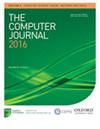Dynamic QoS-Aware Cloud Service Selection Using Best-Worst Method and Timeslot Weighted Satisfaction Scores
IF 1.5
4区 计算机科学
Q4 COMPUTER SCIENCE, HARDWARE & ARCHITECTURE
引用次数: 3
Abstract
The number of cloud services has dramatically increased over the past few years. Consequently, finding a service with the most suitable quality of service (QoS) criteria matching the user's requirements is becoming a challenging task. Although various decision-making methods have been proposed to help users to find their required cloud services, some uncertainties such as dynamic QoS variations hamper the users from employing such methods. Additionally, the current approaches use either static or average QoS values for cloud service selection and do not consider dynamic QoS variations. In this paper, we overcome this drawback by developing a broker-based approach for cloud service selection. In this approach, we use recently monitored QoS values to find a timeslot weighted satisfaction score that represents how well a service satisfies the user's QoS requirements. The timeslot weighted satisfaction score is then used in Best-Worst Method, which is a multi-criteria decision-making method, to rank the available cloud services. The proposed approach is validated using Amazon's Elastic Compute Cloud (EC2) cloud services performance data. The results show that the proposed approach leads to the selection of more suitable cloud services and is also efficient in terms of performance compared to the existing analytic hierarchy process-based cloud service selection approaches.基于最佳-最差方法和时隙加权满意度分数的动态qos感知云服务选择
在过去几年中,云服务的数量急剧增加。因此,找到具有与用户需求相匹配的最合适的服务质量(QoS)标准的服务正成为一项具有挑战性的任务。尽管已经提出了各种决策方法来帮助用户找到他们所需的云服务,但一些不确定性,如动态QoS变化,阻碍了用户使用这种方法。此外,当前的方法使用静态或平均QoS值来选择云服务,并且不考虑动态QoS变化。在本文中,我们通过开发一种基于代理的云服务选择方法来克服这一缺点。在这种方法中,我们使用最近监测到的QoS值来找到一个时隙加权的满意度分数,该分数表示服务满足用户QoS要求的程度。然后,在最佳-最差方法中使用时隙加权的满意度得分来对可用的云服务进行排名,该方法是一种多准则决策方法。使用亚马逊的弹性计算云(EC2)云服务性能数据验证了所提出的方法。结果表明,与现有的基于层次分析法的云服务选择方法相比,所提出的方法可以选择更合适的云服务,并且在性能方面也是有效的。
本文章由计算机程序翻译,如有差异,请以英文原文为准。
求助全文
约1分钟内获得全文
求助全文
来源期刊

Computer Journal
工程技术-计算机:软件工程
CiteScore
3.60
自引率
7.10%
发文量
164
审稿时长
4.8 months
期刊介绍:
The Computer Journal is one of the longest-established journals serving all branches of the academic computer science community. It is currently published in four sections.
 求助内容:
求助内容: 应助结果提醒方式:
应助结果提醒方式:


